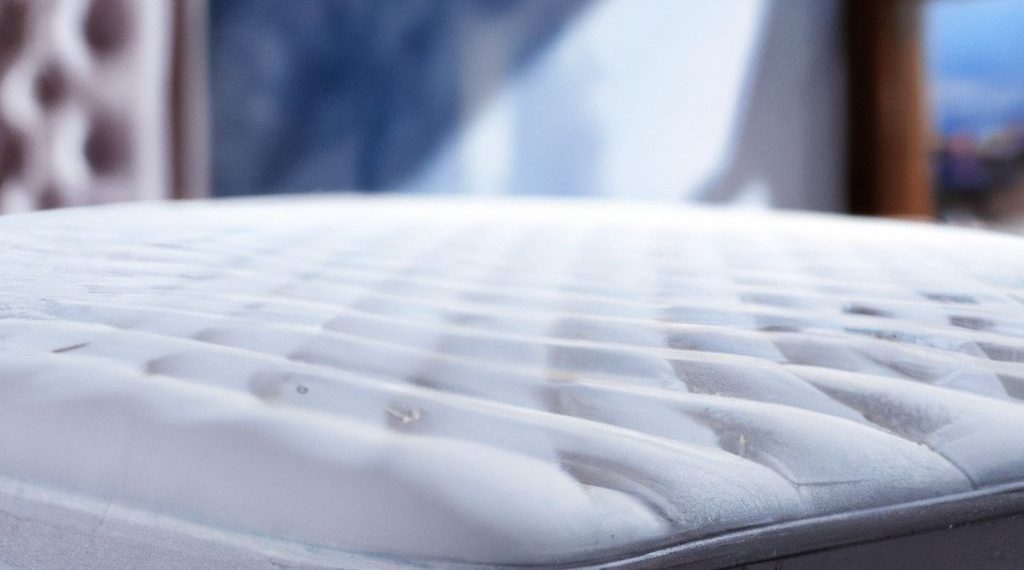Key Takeaway:
- Choosing the right thickness for a memory foam mattress is important for comfort and support. It is important to consider factors such as body weight, sleeping position, and personal preferences when determining the ideal thickness.
- The materials used in memory foam mattresses play a crucial role in determining the overall comfort and performance of the mattress. Understanding the different types and qualities of memory foam can help in making an informed decision.
- It is recommended to consider factors such as body weight, sleeping position, and specific health concerns when determining the right thickness of a memory foam mattress. Consulting with a healthcare professional or mattress expert can provide valuable guidance in selecting the appropriate thickness.
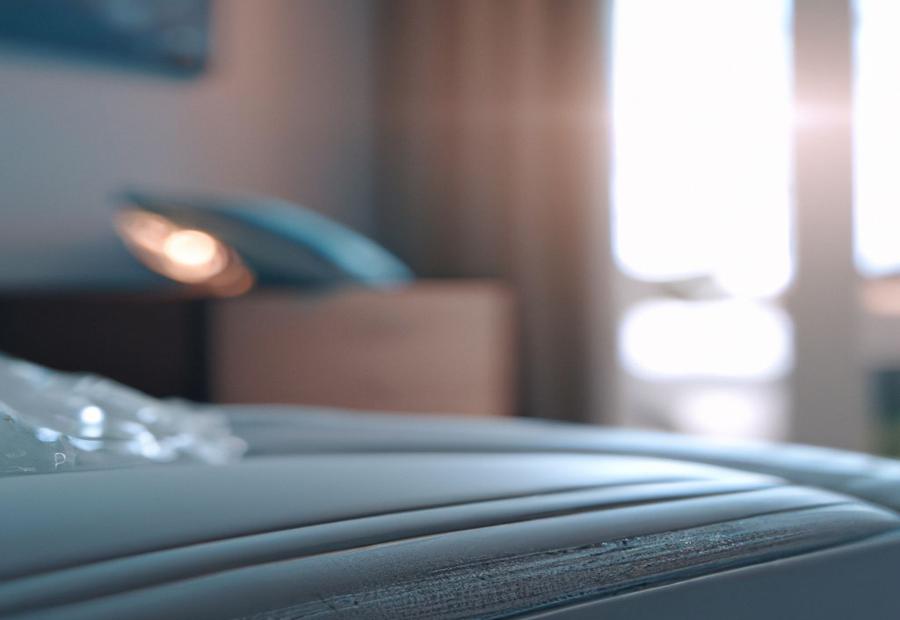
Photo Credits: Www.Mattressreviewguru.Com by Robert Moore
The thickness of a memory foam mattress plays a crucial role in determining our comfort and sleep quality. In this section, we will explore the importance of mattress thickness, discussing how it can impact our overall sleep experience. With insights from experts and supported by relevant data, we’ll uncover the key factors to consider when choosing the ideal thickness for a memory foam mattress, ensuring a restful and rejuvenating sleep night after night.
Importance of mattress thickness
Thickness is a major factor to consider when selecting a mattress. Memory foam mattresses, with their unique properties and benefits, are no different. To determine the appropriate mattress thickness, factors such as body weight, sleeping position and personal preference should be taken into consideration.
Generally, those with higher body weights or those who sleep on their sides prefer thicker mattresses for increased support. Thin mattresses, on the other hand, are suitable for those seeking a firmer feel or having lower body weights.
Other important aspects include foam density, type of memory foam mattress used, heat retention, edge support and motion isolation capabilities. Plus, certifications for quality and safety should also be checked.
In summary, a thick memory foam mattress is a great choice for superb comfort and peace of mind. When choosing the right mattress, remember to consider its thickness and all the factors that influence its performance.
Factors to consider when choosing the thickness of a memory foam mattress
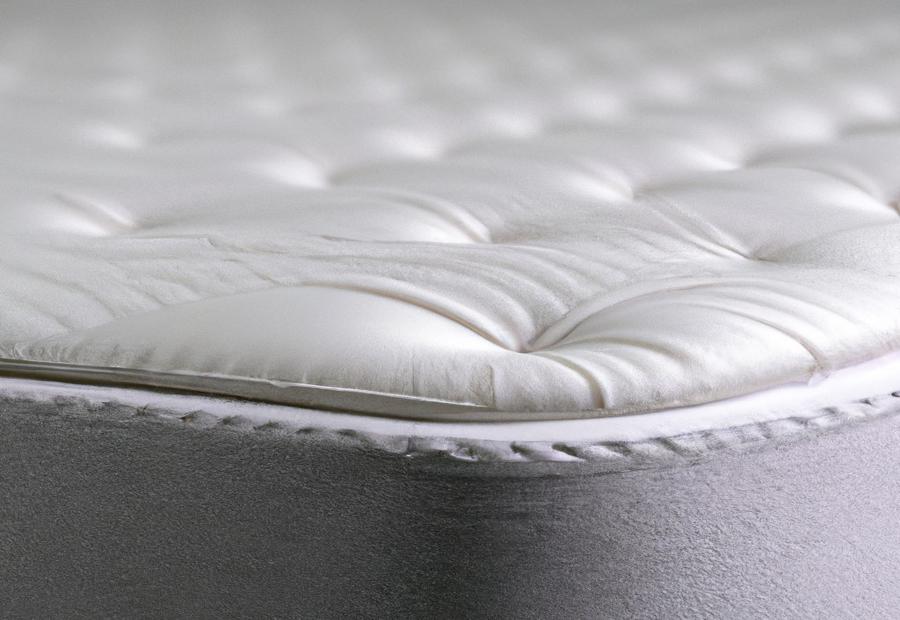
Photo Credits: Www.Mattressreviewguru.Com by Arthur Jones
When it comes to choosing the perfect thickness for a memory foam mattress, understanding the materials used is crucial. In this section, we’ll dive into the factors that should be considered and explore the materials that make up these mattresses. By understanding the various options and their properties, you’ll be equipped to make an informed decision that ensures a comfortable and restful night’s sleep.
Understanding the materials used in memory foam mattresses
Memory foam mattresses have unique materials that give comfort and support. Knowing these materials is essential when buying one, as they can affect things like durability, heat retention, and pressure relief. By knowing more about these materials, people can choose the mattress for their needs.
Analysis of memory foam mattresses reveals different materials work together to give optimal comfort and support. These include memory foam which shapes to the body and relieves pressure points. Plus, a cooling gel or ventilation holes are usually on the top layer to prevent overheating. A high-density polyfoam base gives stability and durability. Some mattresses may have extra layers, like transition foams or latex, for more support.
Not all memory foam mattresses are equal in terms of materials and quality. Some use lower-grade foams which may not offer the same level of comfort or durability. Different brands may have their own blends of memory foam, each with its own properties. Thus, doing research and looking for reputable brands is necessary.
To get the best performance and longevity, some suggestions are worth considering. First, choose a mattress with 4 inches of thickness for support and pressure relief. Second, look for a CertiPUR-US certified one, to make sure the foams meet industry standards. Lastly, get a mattress with a removable and washable cover to maintain cleanliness and make it last longer. Following these tips will help make an informed decision and enjoy the benefits of a high-quality memory foam mattress.
Recommended thickness for a memory foam mattress
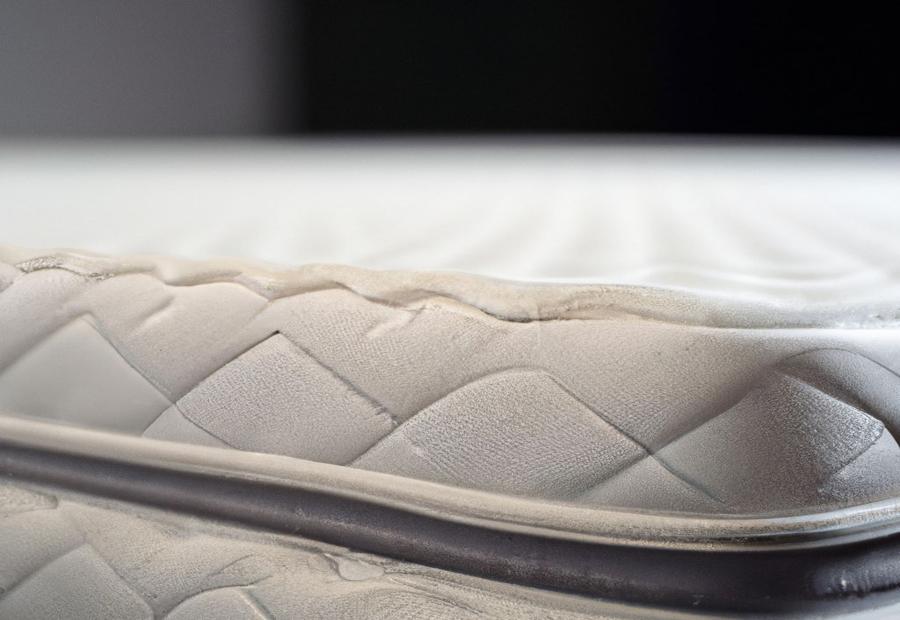
Photo Credits: Www.Mattressreviewguru.Com by Tyler Garcia
Thickness is key for a comfy memory foam mattress. Here’s what to look for:
- 3-4 inches: Perfect for those who weigh less than 130 pounds. Offers contouring and cushioning.
- 5-6 inches: Best for 130-230 pounders. Balance of comfort and support.
- 8-10 inches: Recommended for over 230 pounds. Offers support and durability.
- 12+ inches: Ideal for those with medical conditions. Maximum plushness.
Plus, consider your sleeping position! Side sleepers may benefit from thicker mattresses, whilst stomach sleepers may prefer medium thickness.
Also, check out the mattress’s density, firmness and materials. Choose one that suits your needs and preferences. For those with scoliosis, it is important to select the best mattresses that provide proper support and alignment for the spine.
To keep your memory foam mattress in good shape, rotate it often. This distributes wear evenly and protects it against sagging. Enjoy optimal comfort and support for years to come!
Determining the right mattress thickness for individual needs
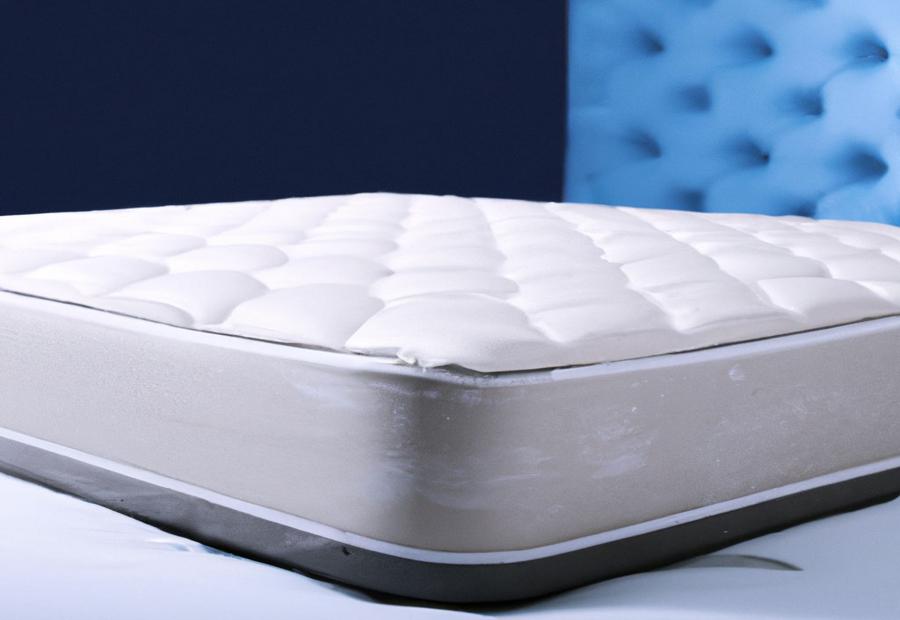
Photo Credits: Www.Mattressreviewguru.Com by Patrick Roberts
Choosing the best thickness for a memory foam mattress is a must for individual needs. When it comes to deciding, here are some key points:
- Comfort and Support: The mattress’s thickness really affects comfort and support. Thicker mattresses give more cushioning, and are good for those who prefer a softer sleeping surface.
- Body Weight: Body weight matters too. Heavier folks will find thicker mattresses offer extra support and stop sagging. Lighter people might like thinner mattresses better.
- Sleeping Position: It also depends on your sleeping position. Side sleepers may go for a bit thicker mattress to support their shoulders and hips. Back and stomach sleepers might prefer thinner ones.
Remember, these are just general guidelines. It’s best to try out different mattress thicknesses to find the one that fits you best. Taking into account comfort, support, body weight and sleeping position can help you pick the ideal thickness for a memory foam mattress for a peaceful and revitalizing sleep.
Additional factors to consider when purchasing a memory foam mattress
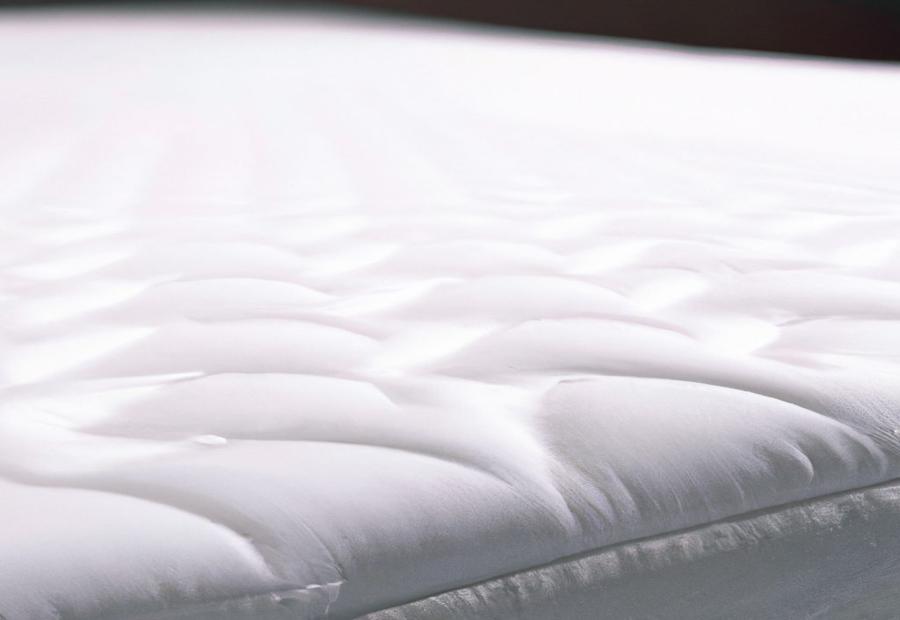
Photo Credits: Www.Mattressreviewguru.Com by Henry Jackson
“
Purchasing a memory foam mattress? Consider these factors. They’ll have a big influence on your sleep and the mattress’s lifespan.
”
Thickness: How thick? Depends on what’s comfy for you. More material cushions pressure points.
Density: Higher density foams are more durable and supportive. But they can also trap heat, so if you’re a hot sleeper, lower density is best.
Firmness: Soft to firm – pick one based on your sleeping position and preferences.
Breathability: Check the mattress has features like open-cell tech or gel-infused foams. These keep you cool.
Certifications and warranties: Look for CertiPUR-US. Plus check the manufacturer’s warranty.
Don’t forget your individual needs when making a decision. Get the best sleep possible with a memory foam mattress. Don’t settle for less!
Conclusion
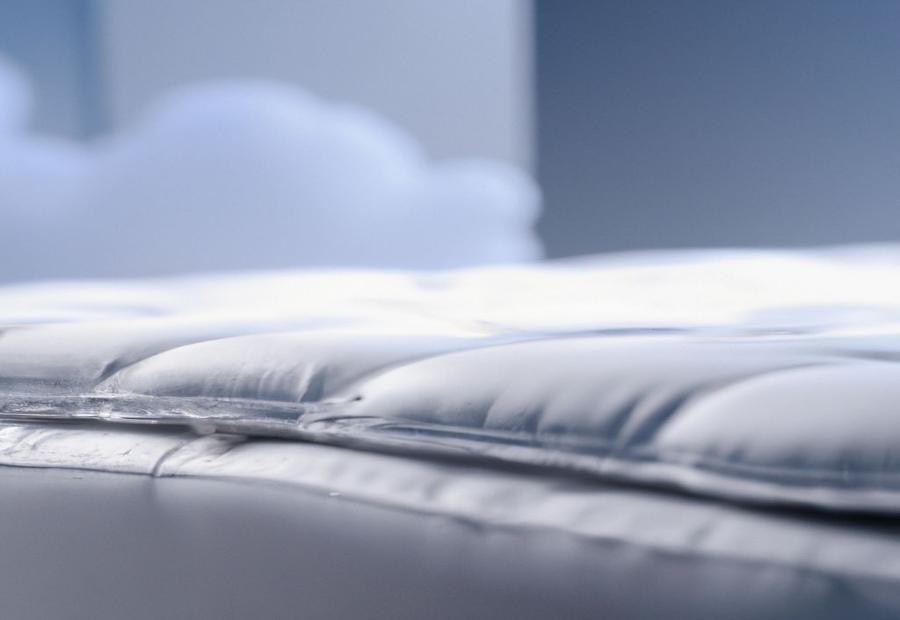
Photo Credits: Www.Mattressreviewguru.Com by Sean Johnson
Memory foam mattresses are renowned for their thickness and comfy, supportive sleep surfaces. Data suggests the importance of thickness when it comes to these mattresses. Thicker memory foam mattresses can give better pressure relief, alignment, and support for the body during sleep. This leads to a more restful and refreshing experience. Not to mention, it boosts the mattress’s durability and lifespan.
When deciding on a memory foam mattress, the thickness is a key factor to think about. Thickness can range from 8 inches to 14 inches or more, depending on personal preferences and specific requirements. Thicker mattresses provide a plush, enveloping feel, creating a cozy sleep space. Thinner mattresses, however, may provide a firmer, more supportive surface. This could be beneficial for those seeking extra back or joint support.
Some Facts About How Thick Memory Foam Mattress:
- ✅ The thickness of a memory foam mattress should be at least 6.5 to 7 inches. (Source: Duroflex World)
- ✅ A 2-3 inch layer of latex foam is ideal for a latex foam mattress. (Source: Duroflex World)
- ✅ The ideal thickness of a foam mattress should be within 6-7 inches. (Source: Duroflex World)
- ✅ Bonded foam mattresses should be around 3 inches thick for orthopedic use. (Source: Duroflex World)
- ✅ Mattresses that measure 10 inches or more are considered very comfortable and supportive. (Source: Duroflex World)
FAQs about How Thick Memory Foam Mattress
How thick should a memory foam mattress be?
According to the reference data, the thickness of a memory foam mattress should be at least 6.5 to 7 inches for optimal comfort and support.
What is the recommended thickness for an innerspring mattress?
The reference data suggests that the overall thickness of an innerspring mattress should be around 7 inches to provide the desired level of support and cushioning.
Is a bonded foam mattress suitable for orthopedic use?
Yes, for orthopedic use, a bonded foam mattress should be around 3 inches thick, which can provide the necessary support and pressure point relief for individuals with orthopedic conditions.
How does a memory foam mattress offer customised comfort?
A memory foam mattress has multiple layers that contour to the body shape, offering customised comfort and support to different regions of the body. This helps alleviate pressure points and provides a more comfortable sleeping experience.
What are the structural components of an innerspring mattress?
An innerspring mattress typically includes independently wrapped coils, steel coils, and various layers of foam, polyester batting, wool, cotton, and adhesives. These components work together to provide both support and cushioning.
How does a memory foam mattress regulate body temperature?
Memory foam mattresses are known for their ability to regulate body temperature. The materials used in memory foam have open cell structures that allow better airflow, keeping the body cool and preventing overheating during sleep.

